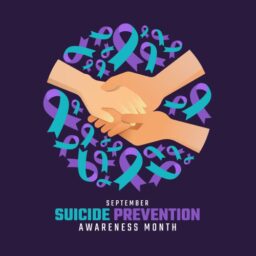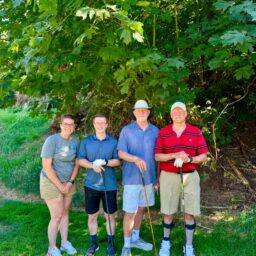Tips for Soothing a Dry Winter Throat

Winter is cozy-up-at-home season, a time for wearing comfy sweaters, curling up on the couch and kicking back with friends and family. Unfortunately, it’s also when you’re likely to experience a dry throat, which can put a damper on your plans. What Can Cause the Condition When you breathe in air, your nose and mouth…
Heart Health May Improve With Regular Sleep

February is American Heart Month, a great time to focus on how to help your heart stay healthy. One simple way is to make sure you get regular sleep. Having a regular sleep schedule is important for everyone, but research shows it’s even more crucial if you are recovering from heart failure. A study from…
New Year, New Hearing, New You!

When a new year begins, many of us set resolutions to live healthier and feel happier. If these goals resonate with you, there’s a powerful but often overlooked way to achieve them: Improve your hearing. Why Hearing Health Matters Ensuring you hear well is crucial for your overall well-being. Research shows that people with untreated…
A Fond Farewell to Dr. Thompson and Dr. Johnson
This month marks a major milestone for Willamette ENT as we say goodbye—and offer our deepest thanks—to Dr. Thompson and Dr. Johnson, who are both retiring after many years of dedicated service to our clinic and the Salem community. Decades of Compassionate Care Dr. Thompson joined Willamette ENT in 1987, followed by Dr. Johnson in…
Willamette ENT Wraps Up Another Successful Holiday Food Drive

As the holiday season arrives, our team at Willamette ENT is once again reminded of the incredible generosity within our clinic and our patient community. From November 10 through December 5, we held our annual Holiday Food Drive—and thanks to the kindness of staff and patients alike, it was a great success! Over 1,000 Items…
Help Us Spread Holiday Cheer—Join Willamette ENT’s Food Drive!

The holiday season is a time for giving, and this year, the Willamette ENT team is coming together to support our neighbors through a community food drive, running from November 10 through December 5. We invite our patients, families and friends to join us in helping local families who are facing food insecurity. All donations…
Willamette ENT Visits with Community at Riverfront Family Fest

Willamette ENT had a blast at the 2025 Riverfront Family Fest put on by Family Building Blocks! More than 4,000 community members attended this year’s family festival, one of Salem’s largest child-friendly events. The festival featured more than 65 vendors, each with different hands-on activities to promote well-being for children and parents in the community….
September Is Suicide Prevention Month

Organized by the National Alliance on Mental Illness, the goal of Suicide Prevention Month is to raise awareness, spread hope and facilitate action. Though Willamette ENT primarily focuses on concerns related to the ears, nose and throat, we are dedicated to providing resources to those who express suicidal or self-harm ideation. The following local organizations…
Willamette ENT Participates in Camp Silver Creek Golf Fundraiser

The YMCA Camp Silver Creek Golf Tournament was a hole-in-one for the Willamette ENT team. Dr. Donovan, Mitchell Gore, Tom Chambers and Jason Beyrouty participated in the event on Monday, July 14, a fundraiser for youths attending Camp Silver Creek. Our golf team placed fourth gross overall, finishing 11 under par. While they played their game,…
Mark Your Calendars for the Riverfront Family Fest

Willamette ENT is excited to participate in Family Building Blocks’ Riverfront Family Fest. One of the largest child-friendly community events in Salem, this health fair is free to attend and scheduled from 10 a.m. to 2 p.m. Saturday, Aug. 2, at Riverfront Park. At our booth, kids will have the opportunity to participate in an…
“I have been going to Willamette ENT on and off for most of my life. The staff is always so friendly, and the doctors and nurses show a lot of care and compassion!”